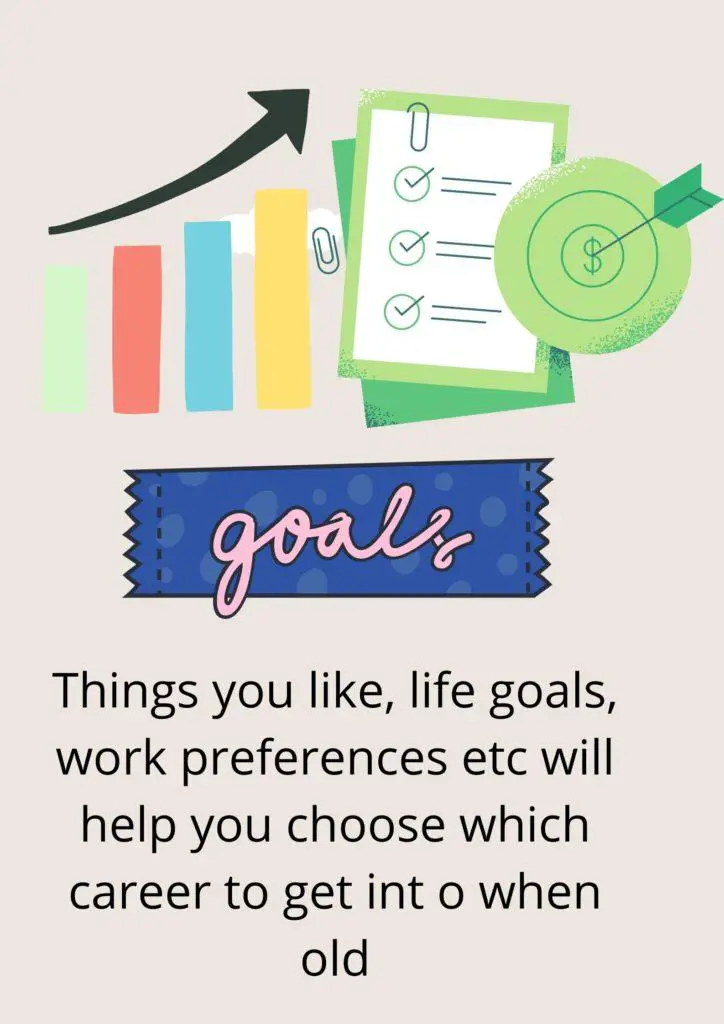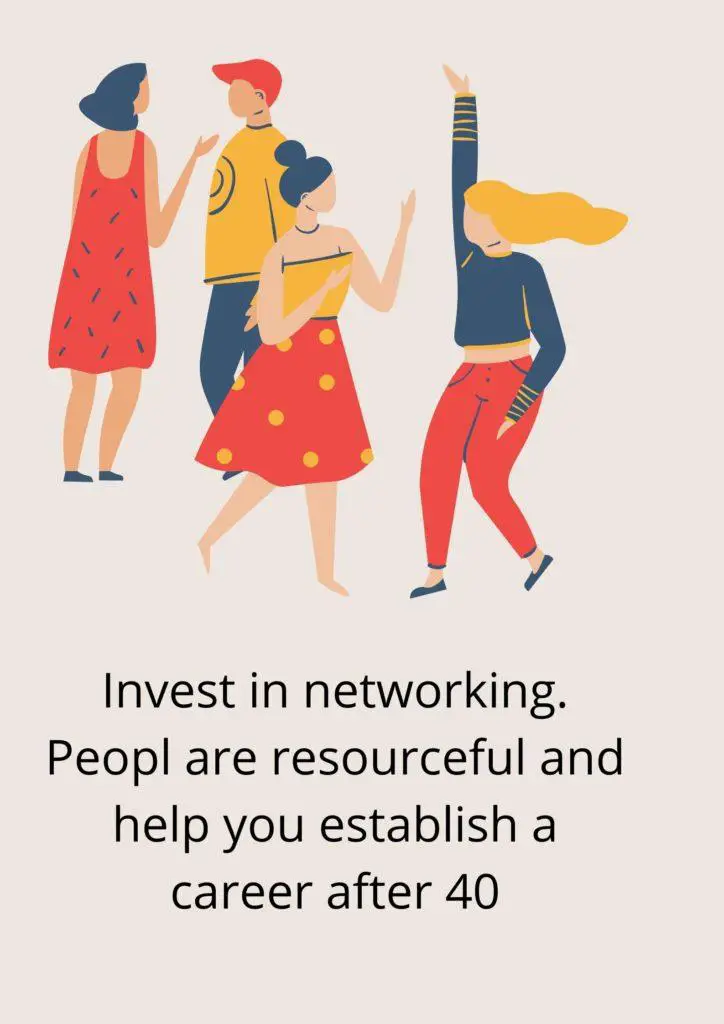Returning to working or changing your career at 40 years or older is not too late. You still have the skillset that employers still value and are looking for. However you need to choose wisely the career to pursue by considering your passion, needs, life goals, and job security.
You can easily return to work even at 40 years old by volunteering, networking, using your expertise, upgrading your skillset, being objective, confidence, using a career coach and pursuing entry level jobs. Some easy jobs to get into when old include social work, project management, and consulting among others.
Is 40 Too Late For a Career Change?
Never pass up an opportunity to reinvent yourself if you believe it will make you happier, at whatever age, no matter how old you are. Career change after 40 is possible and not too late. In fact, it is just about the right time because of several reasons;
- You have substantial experience in your line of work
- You probably have made many career mistakes and learned from them to exactly know what you want in your next years of life career-wise.
- You really want to spend your time in ways that truly give you meaning, like work
- You need to remain active, socially connected, and intellectually engaged. Work offers a level of simulation are critical for living a thriving and fulfilling life at your age.
It is also true about returning to work after retirement. You can return to work even after you retire if you have the opportunity to do so. There is still a decent percentage of people that go back to work after retirement.
While most of the options may be limited by the hiring policies of some firms, there is still a ton of other opportunities for work that you can pursue. Some are even lucky to have their old employers ask them to return or are willing to take them back.
How to Choose a Fulfilling Career after 40
1. Make a Career Out of your Passion
Your passion may be ignited naturally or through experience. Ask yourself What things do i like? (people, computers, technology, sports, helping people, writing, team vs. solo). These things establish the areas of work in which you have passion in and can pursue as a career.
2. Consider your Needs from the Job
What things do you want from a job when 40 years old (flexibility, good holidays, high pay, low stress)?
The things that you want out of a job may help you decide which fields are likely to meet them. Some careers are more likely to be a fit for these needs than others.
Unlike when younger, pursuing a career when old or after 40 is driven by goals. You have standards and needs that you look to meet through your work.
3. What are your Life Goals?
What kinds of things could you see yourself doing? (and what is stopping you from these?).
Both your short-term and long-term goals can help you decide which line of work is more appropriate for you. By setting your goals, you can create objectives and milestones that will help you decide which careers are more likely to meet them.
Also, understanding the weaknesses you have and the limitations preventing you from achieving them will give you insights into possible works that you can do at this age.
Read: Factors to Consider in Choosing a Job
4. Job Satisfaction and Security
Would you prefer to work for yourself or someone else? Being a self-employed entrepreneur or an employee makes a lot of difference after you are 40. The kind of things that you need or want to pursue may or may not be possible under employment.
As such, the need to build something for yourself will help you decide if to look for potential employers in your area or start a business of your own, even when old.
Benefits of Taking a Career Step-back

How to Easily Get Jobs after 40
1. Volunteer
Pick a few places you could see yourself working and volunteer a couple of hours a week. It will give you the opportunity to meet with people who have distinct experiences in that field.
It also gives you exposure, which is very important, especially if you have been out of the workforce for a long period. It will help ease into work and test out the areas of work that you are comfortable working with now that you are older.
2. Network to get Work Opportunities
Invest your time in networking. You may already have built a network, and if not, it is not too late to start. People are resourceful, and you should take full advantage of this.
Be social and upfront and remember that most people, when presented with a genuine request, love giving advice, recommendations and referrals. You can meet your new employer or client this way.

3. Use your Expertise and Passion
Passion and experience are key in getting back to work after 40. Consider the line of work that you were in and enjoyed from your previous work. It is very important that you work in fields or areas you have passion for. At this age, it will help when you love the kind of work you do, as it improves your quality of life.
Alternatively, you can go for areas where you have experience. Extensive experience in an area makes you an expert in that field. It will be a good thing if you have passion in the area of work where you also have experience.
4. Upgrade your Skill Set
You must learn and study and be relatively current. Don’t shy from going back to school if the line of work you want to pursue requires you to acquire new skills. Pursue specific skills or certifications to further the qualifications needed.
The basic idea is to build on your existing skillset so that you can out-compete other job applicants in whatever industry you decide to focus on. That way, your background becomes something you can capitalize on instead of something to explain.
Managing Studying, Work and Family
5. Remain Confident in your Chosen Career
It can be challenging and hurting to the ego to make a career shift or start a career at 40. You may have had all the seniority at your last job but only be an entry-level employee in your new role. You need to keep your confidence and motivation up.
6. Remain Objective
Be aware of age discrimination. You may find it hard to get jobs in fields you want to because of your age. After 40, you will likely hear a lot of ‘you are overqualified”.
Therefore be bold. , creative, flexible, and confident. You have a lot to offer, and such experience is stellar. Reframe your age as an advantage, not a disadvantage. Do not let age limit you but
Also consider how the career change will impact your income. Because you are probably starting with low or no experience at all in these new field, you may a payment lower than your earlier salary. Despite this, you need to remain objective.
7. Pursue Entry Level Job Opportunities
Consider internships with possible full-time offers afterward. Even if you don’t get an offer afterward, you’ll have something recent to put on your resume. You can utilize this later to get another job.
If you have no idea of which field to shift to, make a list of companies who you admire, for whatever reason. Almost all of them will have “careers” pages on their websites. Have a browse and see what you fancies.
Check out your local resources too for things like career choices, aptitude tests, etc. that may help you to decide on your next steps and direction. You may find specific resources tailored for older adults or people returning to the work market after 40.
8. Invest in Career Coaching
It is refreshing to have a different opinion or perspective over your work or ideas. You will really benefit from a career coach because the dynamics of a career are different when you are old. Find a job coach to get fresh eyes on your weaknesses or limitations.
Easy Careers for 40 year Olds
A. Social Work
After you are forty, you likely have gathered immense experience in various areas that can be tapped into community work. Social work is hence a career that will be easier to switch to when old.
B. Project Management
It is an area that is possible to pursue because it contains many facets. After 40 you probably have at least 3 or 4 careers. Whereby each transition may have no obvious connection, project management as a career will help make this connection. These underlying skills and experiences will allow you to make some great moves in project management in varying fields.
C. Advising and Consulting
If you have been working for over ten years, you have extensive research in several areas. Pick an area of particular interest to you and pursue being a consultant for it. With the wealth of knowledge you have acquired, advising based on them is a good career shift.
You can become an advisor to firms, businesses, or even the government. You will find this line of work to be easier to get into at your age.



